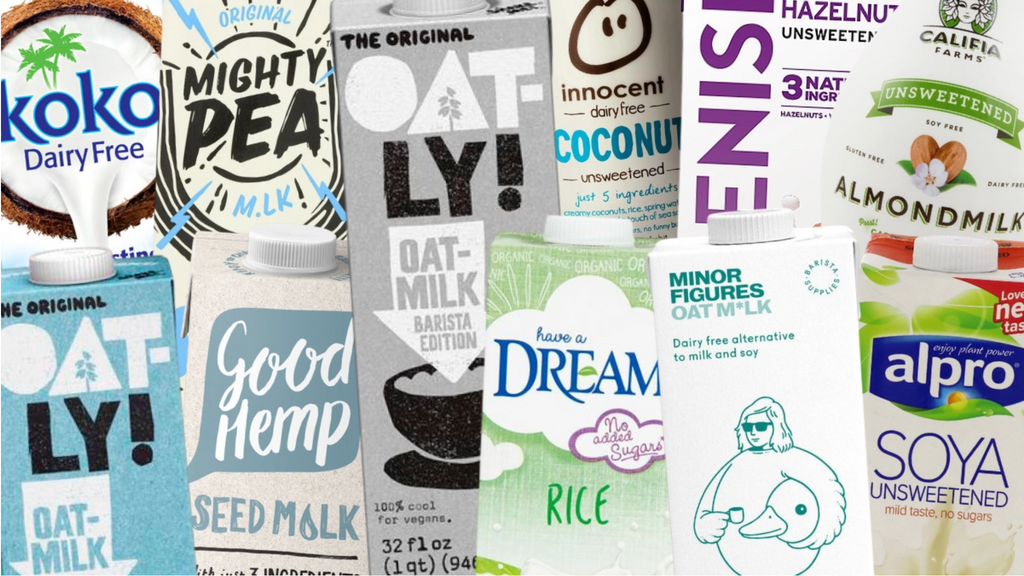The last few years have seen a huge expansion in the ranges of plant-based milk. According to research from The Grocer trade magazine, in the UK alone, over 60% of people have purchased a plant milk, with most buying at least once a month. These decisions are based on a mix of sustainability as well as health. So how does plant milk stack up against dairy?
Cow’s milk
Always a great source of calcium and protein, cow’s milk also includes all nine essential amino acids.
Haskapa blends brilliantly with dairy milk and yoghurt, adding a delicious tangy flavour, high levels of Vitamin C as well as antioxidants.
Oat milk
Oat milk is much lower in protein than cow’s milk and higher in carbohydrates. It does however contain beta glucans, a soluble dietary fibre that is recognised for its cholesterol-lowering benefits. Some brands, such as Oatly, fortify their products with iodine. Oat milk has a naturally sweet taste which makes it a great fit with Haskapa’s tangy flavour.
Soya milk
Nutritionally, soya milk has been seen as the closest to dairy milk, as soya beans are a complete protein and contain all the essential amino acids. It’s lower in calories than semi-skimmed cow’s milk but contains only very slightly less protein and it’s also low on saturated fat.
Hemp milk
Whilst very low in protein, hemp seed milk contains naturally occurring omega-3 and omega-6, which are essential for health and make hemp a good choice for vegans. It’s not the best substitute for cow’s milk unless you are getting calcium from other sources.
Rice milk
Rice milk can be high in calories compared to dairy and other plant milks. However it is low fat and low saturated fat which may suit some diets. The sugar levels can be high because of its high carbohydrate content. Bear in mind that rice milk has virtually no natural protein.
Pea milk
Pea milk is one of the newer entrants in the plant milk sector. It’s actually made from yellow split peas to create a creamy dairy free milk alternative. Pea milk has almost as much protein per 100ml as dairy milk. Certain brands such as Mighty Pea are fortified with more calcium than any other plant or dairy milk.

Plant milks typically have different PH levels, which accounts for the variation in colour when blended with Haskapa!
Almond Milk
You may know that almonds are a water-hungry crop, which makes it not the best choice environmentally. However, it is low calorie and low fat and one extra benefit is that it naturally contains Vitamin E which helps maintain healthy skin and eyes. Note though, that it is low in protein, partly down to the fact that typically the largest ingredient in almond milk is water – some brands contain only 2% almonds!
Coconut milk
If choosing coconut milk, due to worldwide demand and deforestation, it’s best to look for Fairtrade certification to help protect poor coconut farmers from low prices. Coconut milk has more saturated fat than cow’s milk and very little protein, which makes it less effective as an alternative to dairy.
What about organic options?
Plant milks can’t be fortified if they are labelled as organic. So if you want to ensure that your plant milk is a source of calcium and other minerals and vitamins, you’ll need to choose non-organic versions. It’s also worth noting that unsweetened versions will be better for your health, so better to get that flavour boost from Haskapa!
Whichever you choose, you'll be pleased to learn that Haskapa blends brilliantly with all kinds of milk and yoghurt, adding a delicious tangy flavour, high levels of Vitamin C as well as those important antioxidants.
Buy direct here:
https://www.haskapa.com/collections/haskapa-powder

